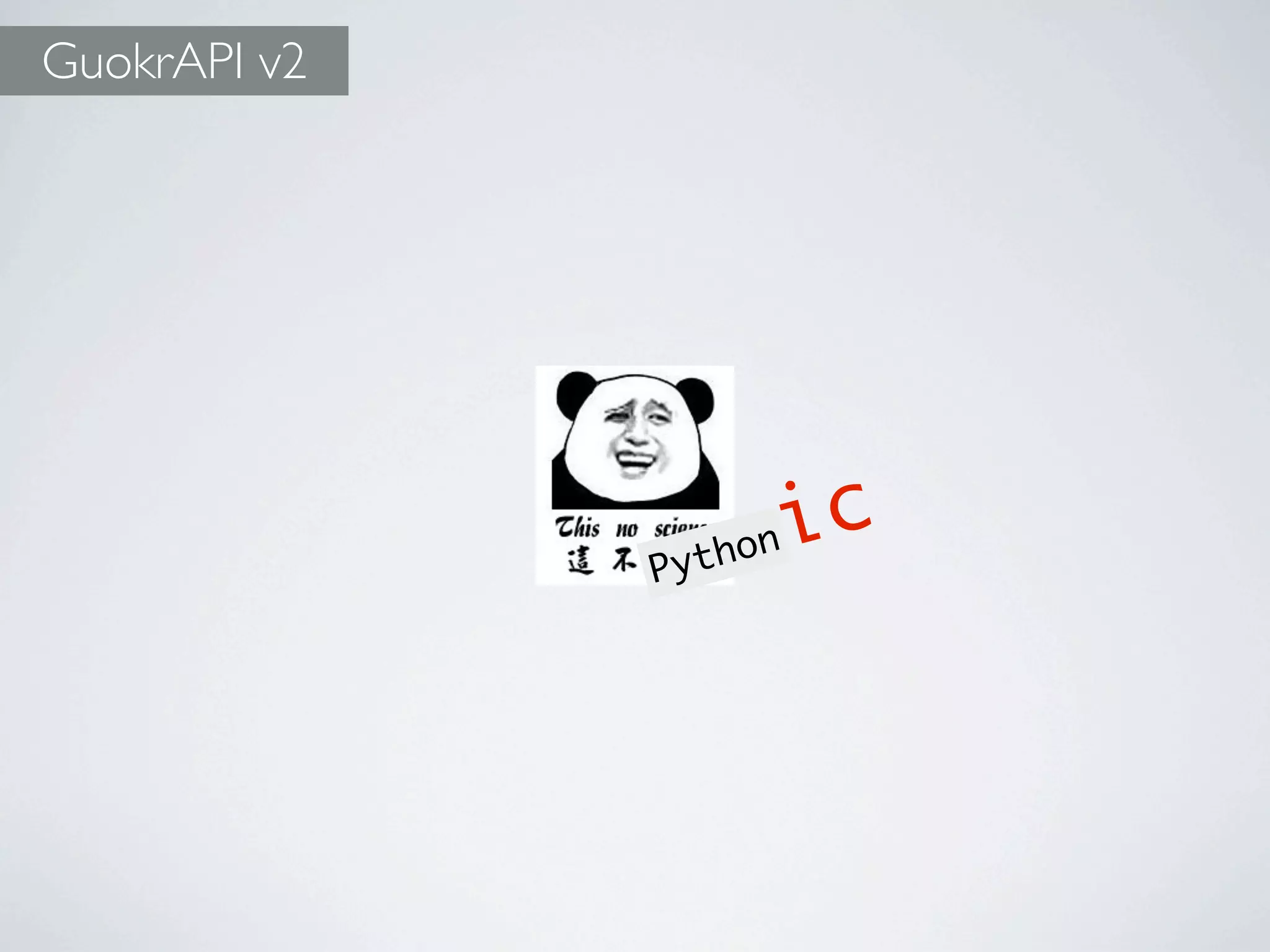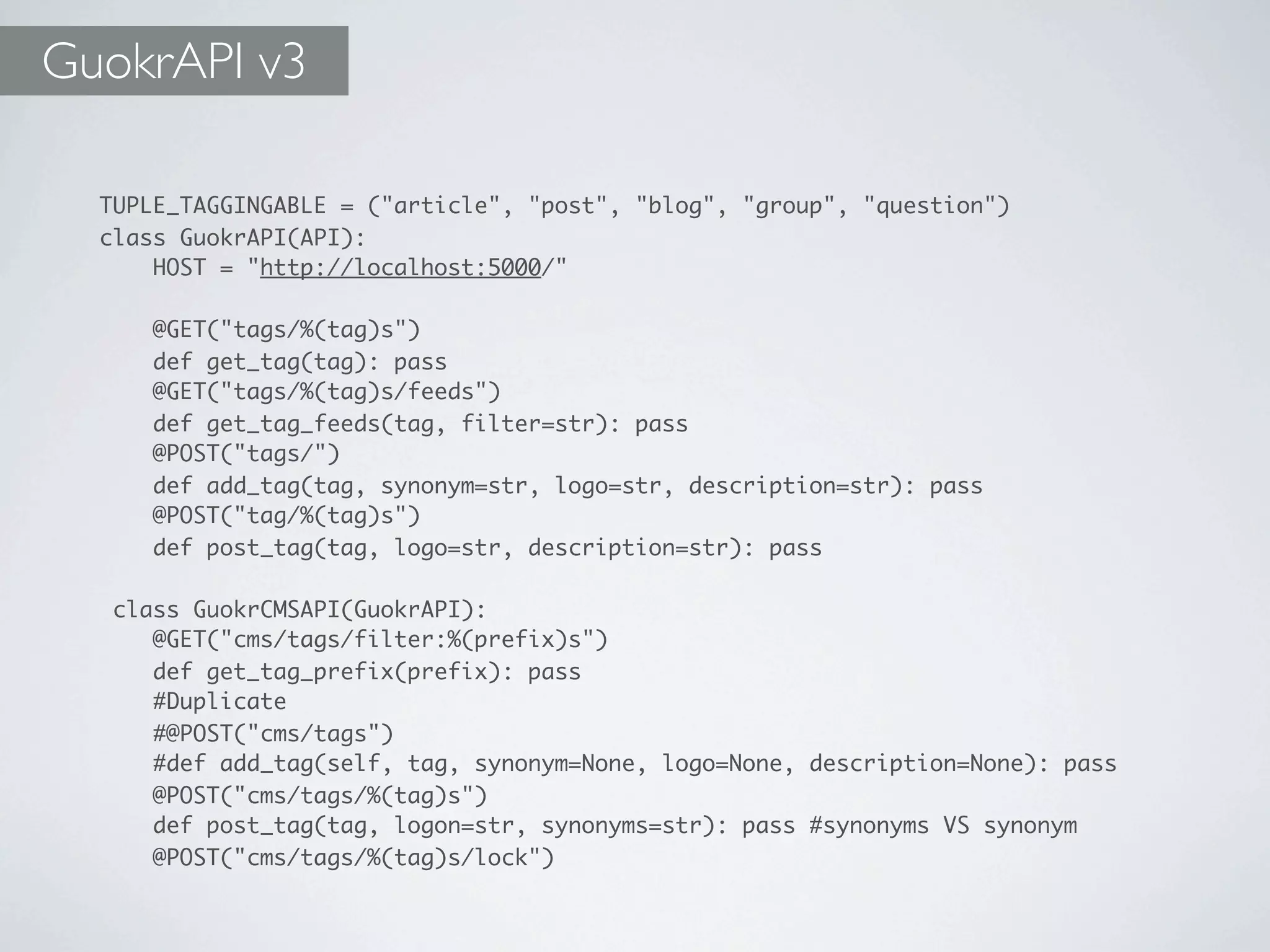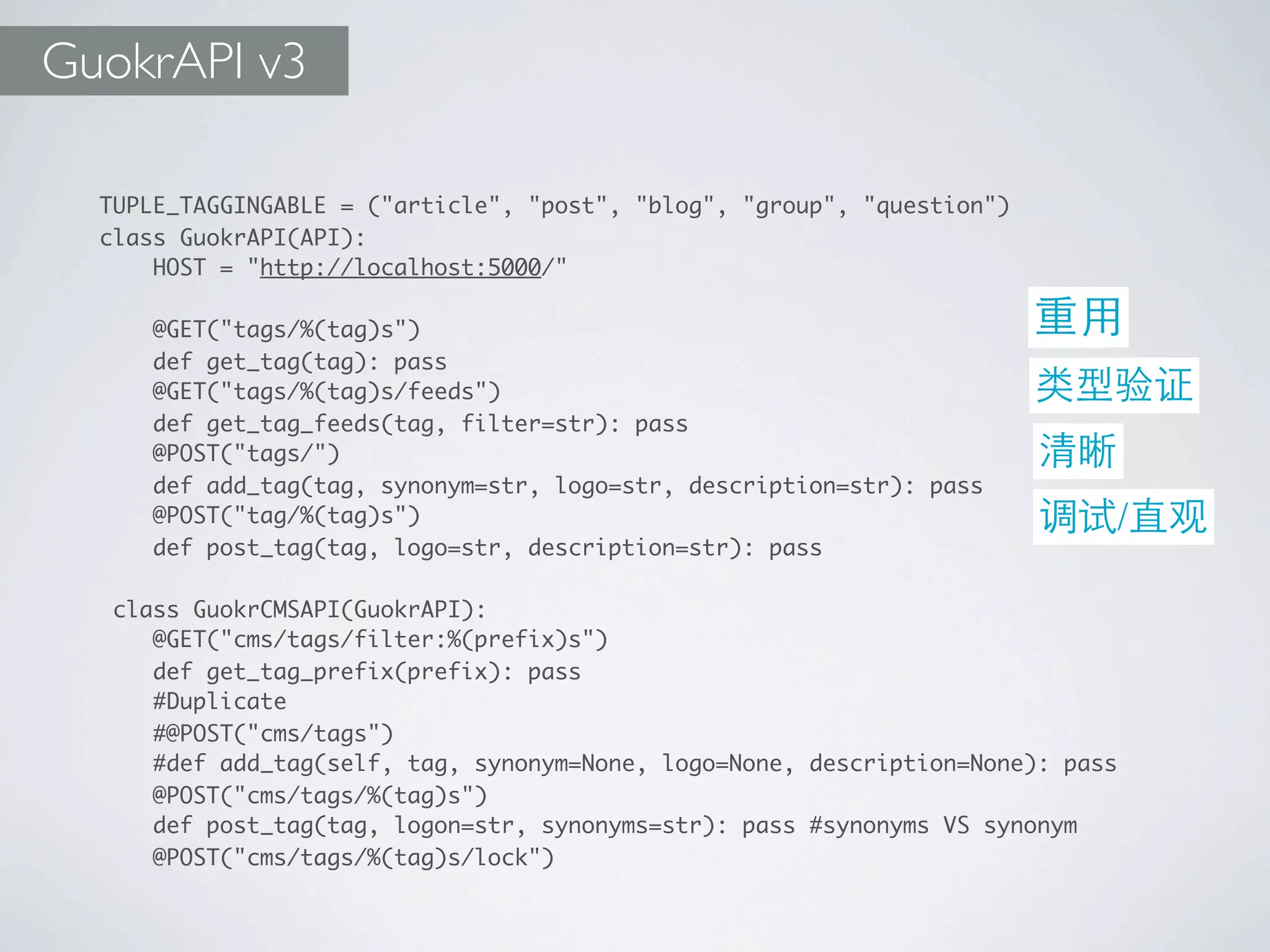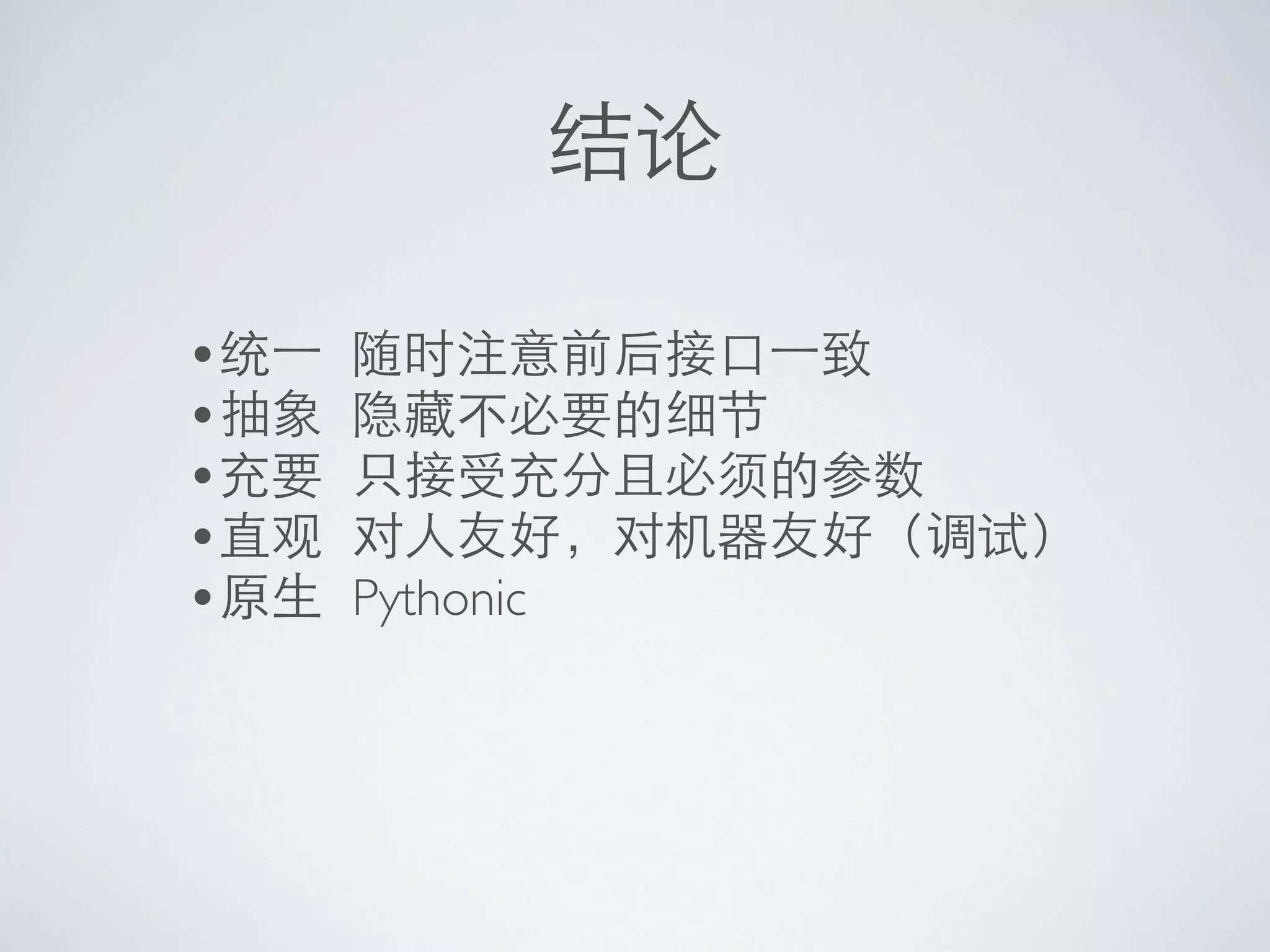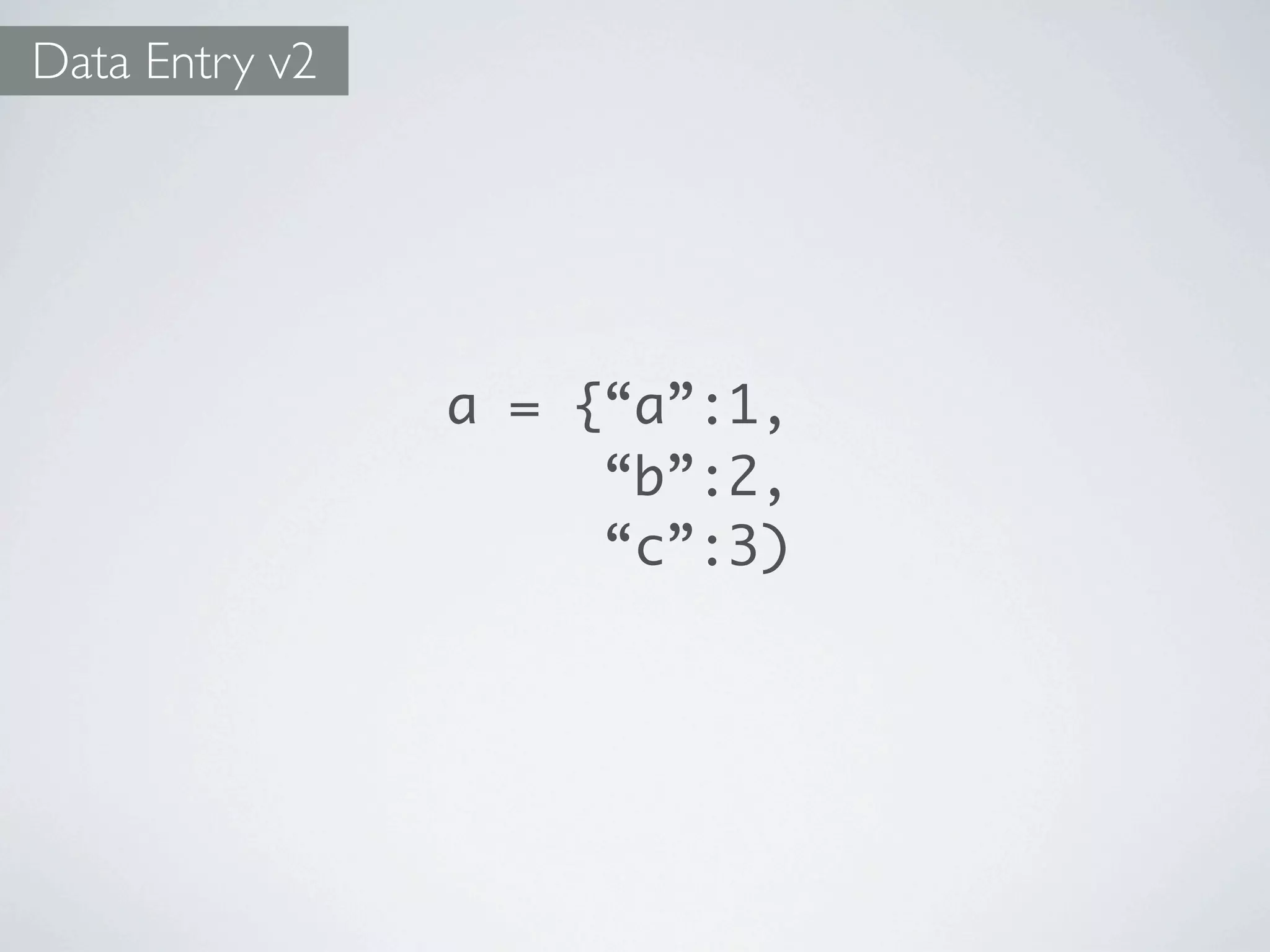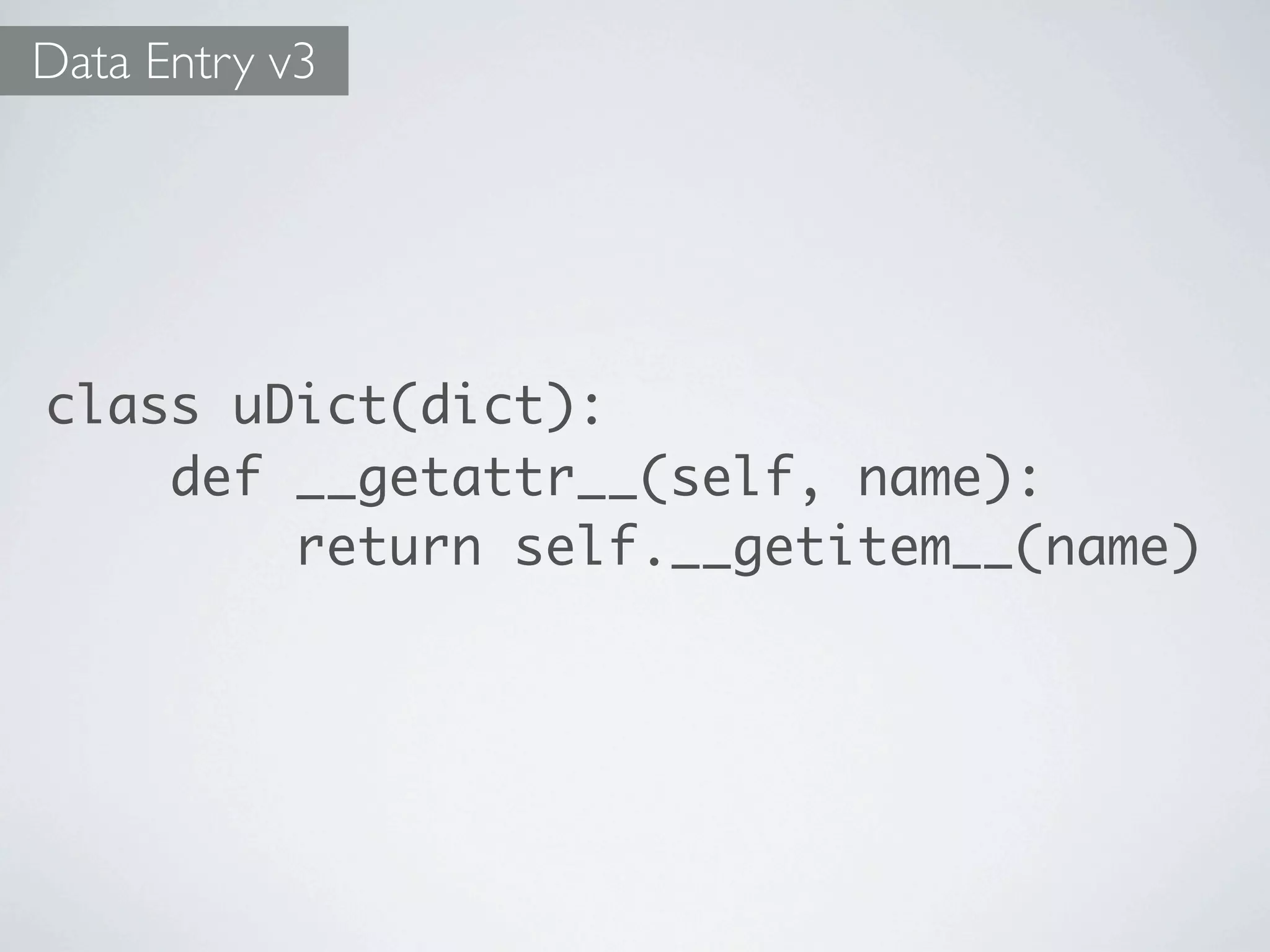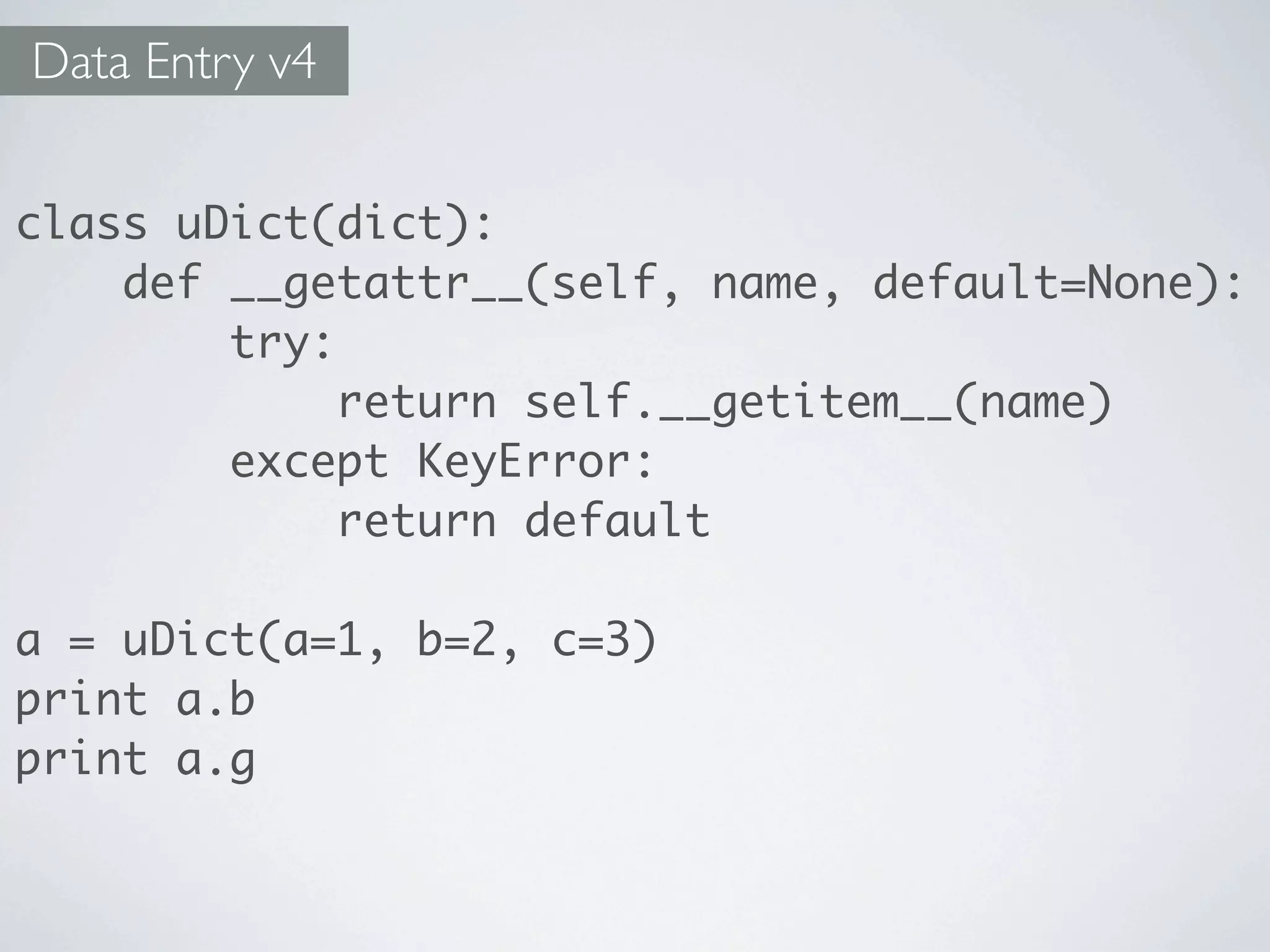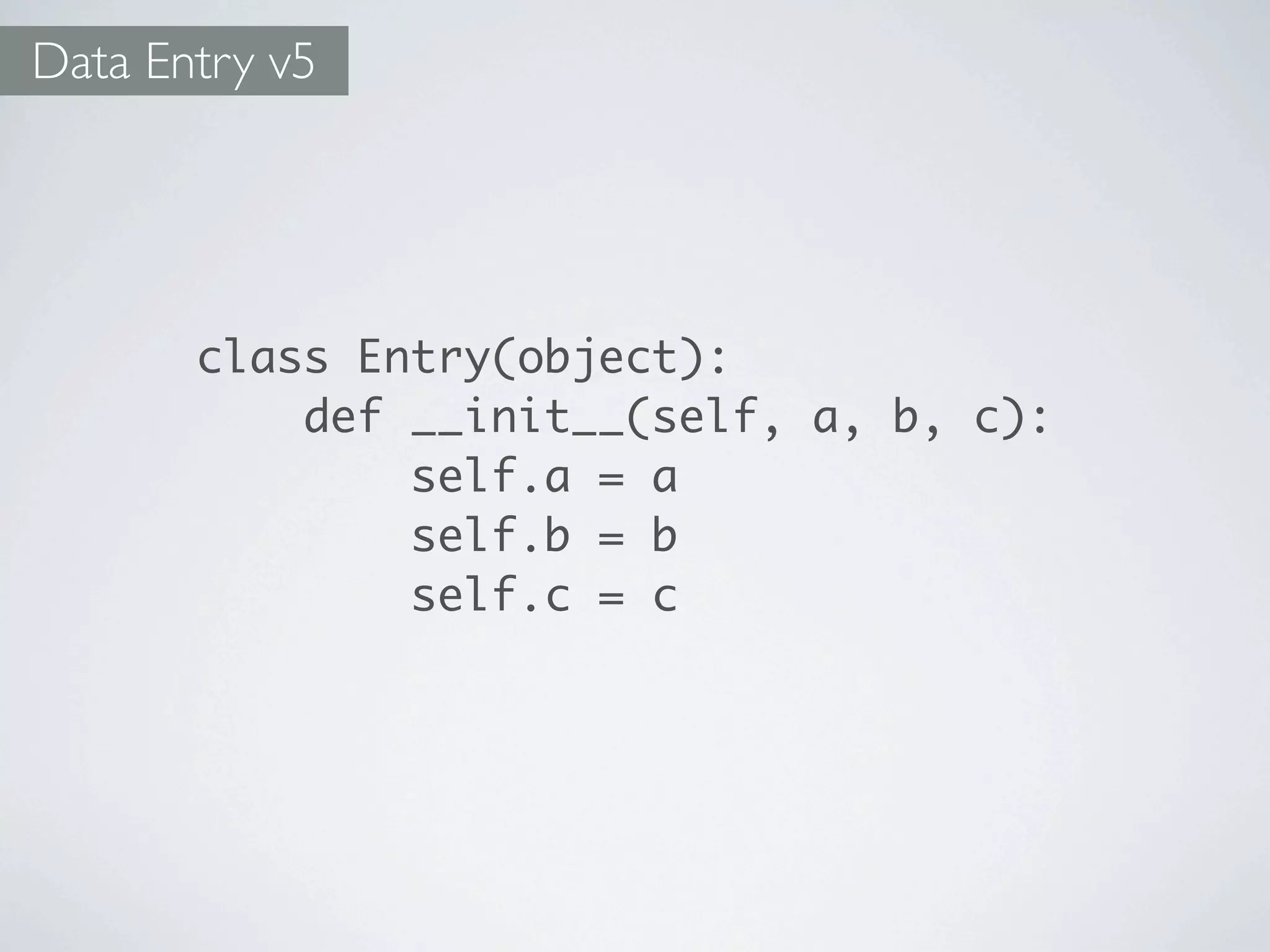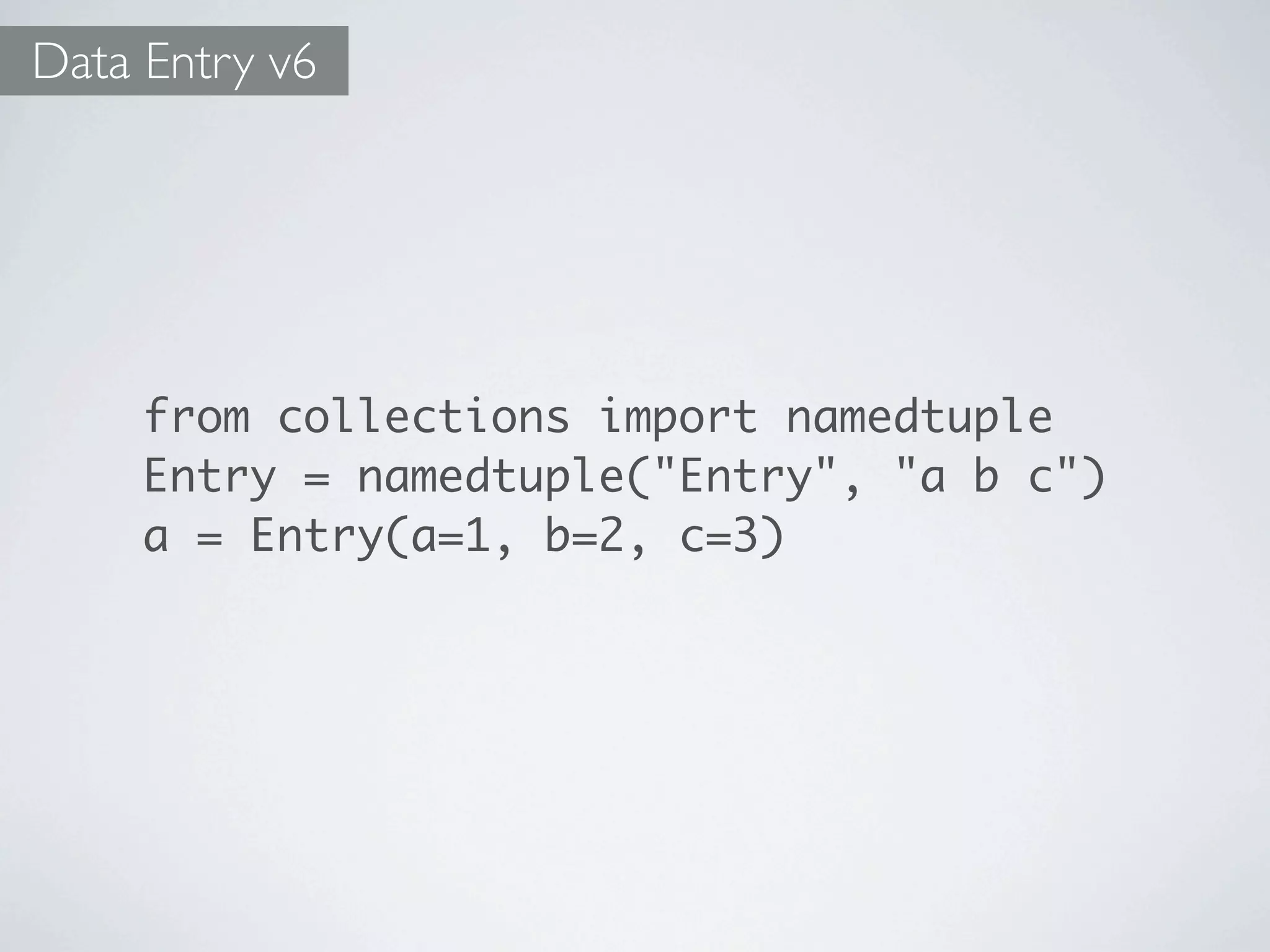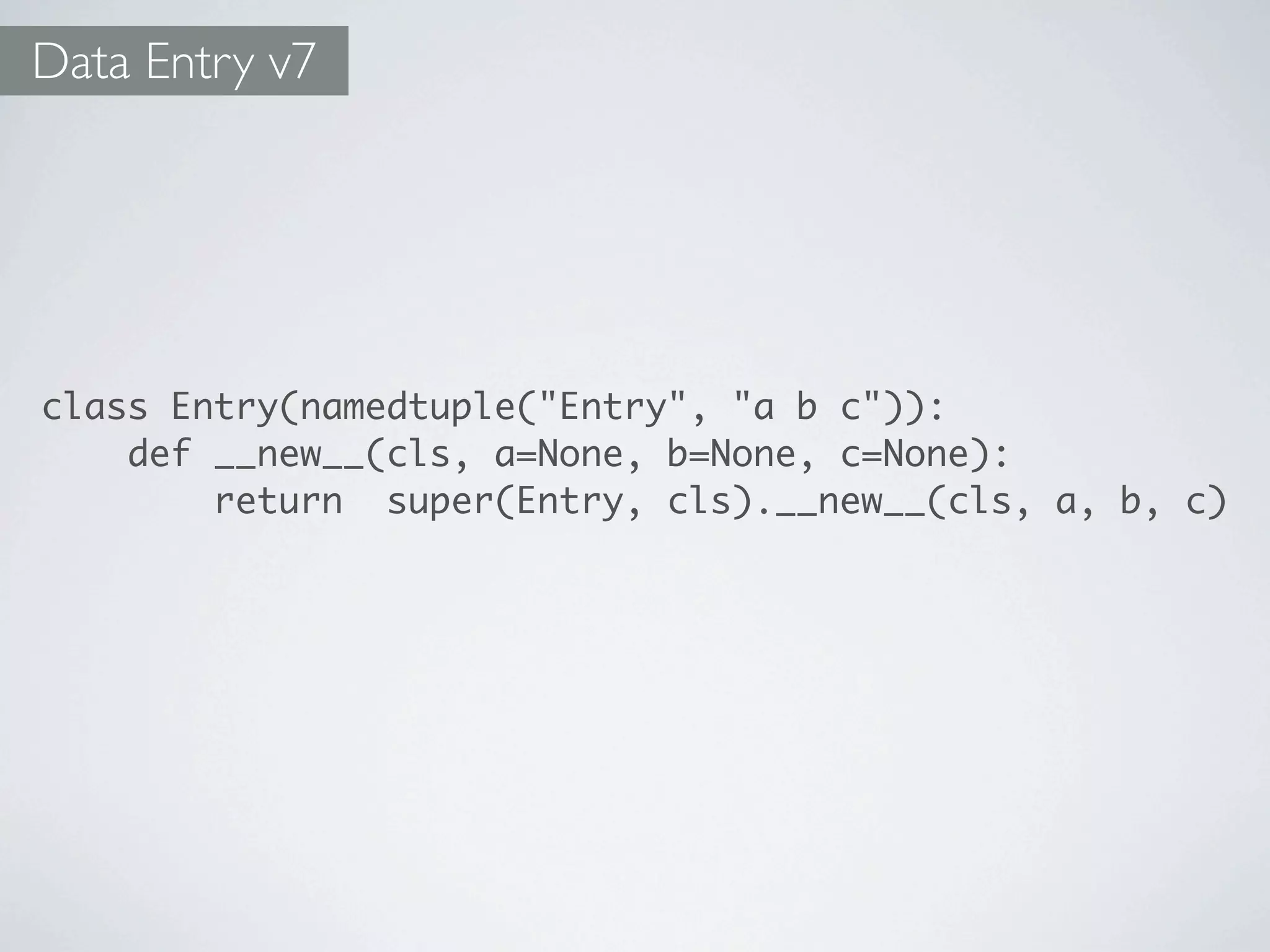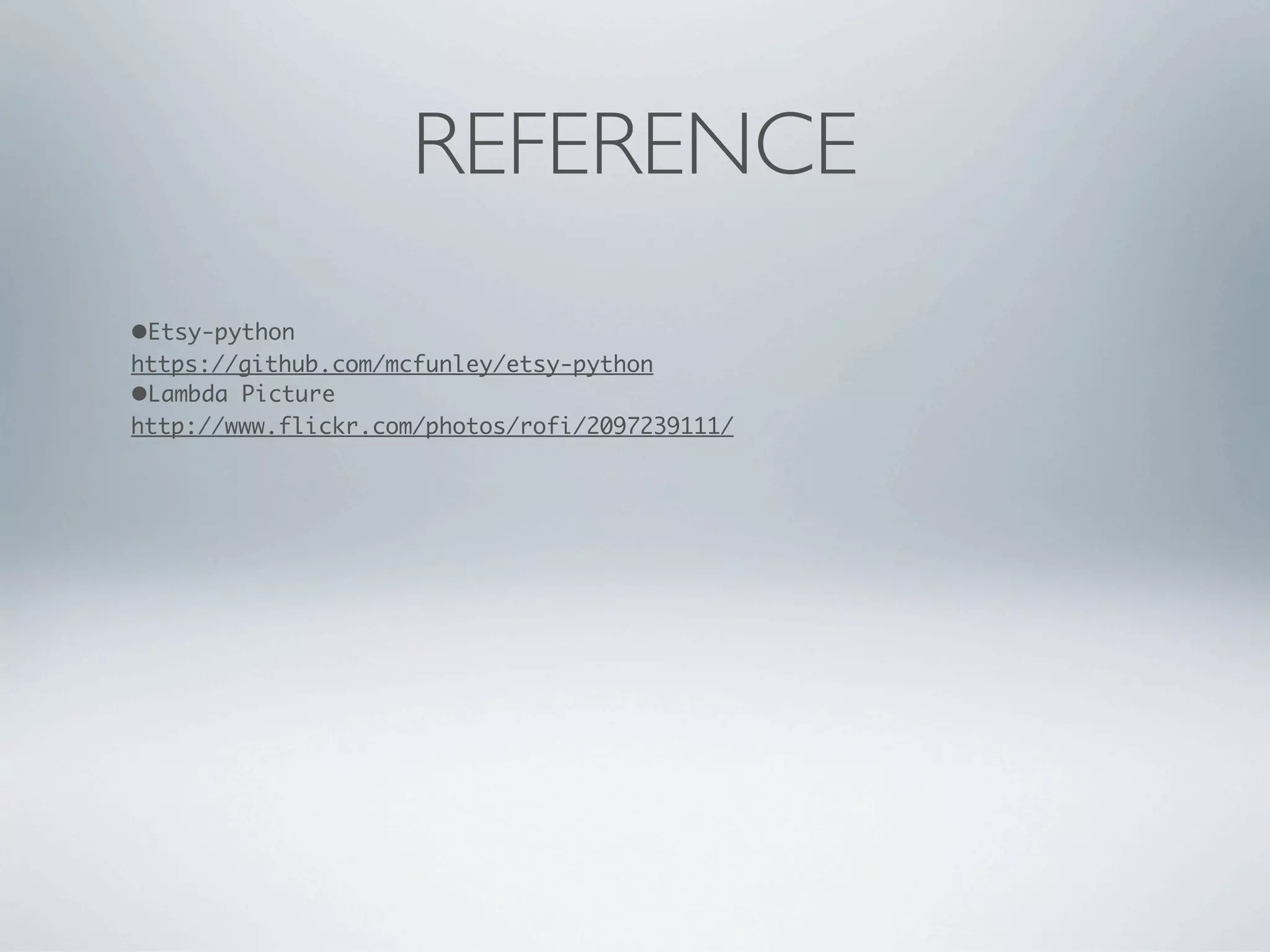The document describes different approaches to defining APIs for accessing web services in Python. It discusses evolving methods from using dictionaries and custom classes to define APIs, to using Python's built-in namedtuple to create immutable data classes for API resources. The conclusion advocates designing APIs that are consistent, abstract unnecessary details, only accept required parameters, are intuitive for both humans and machines, and are Pythonic and use native Python features.


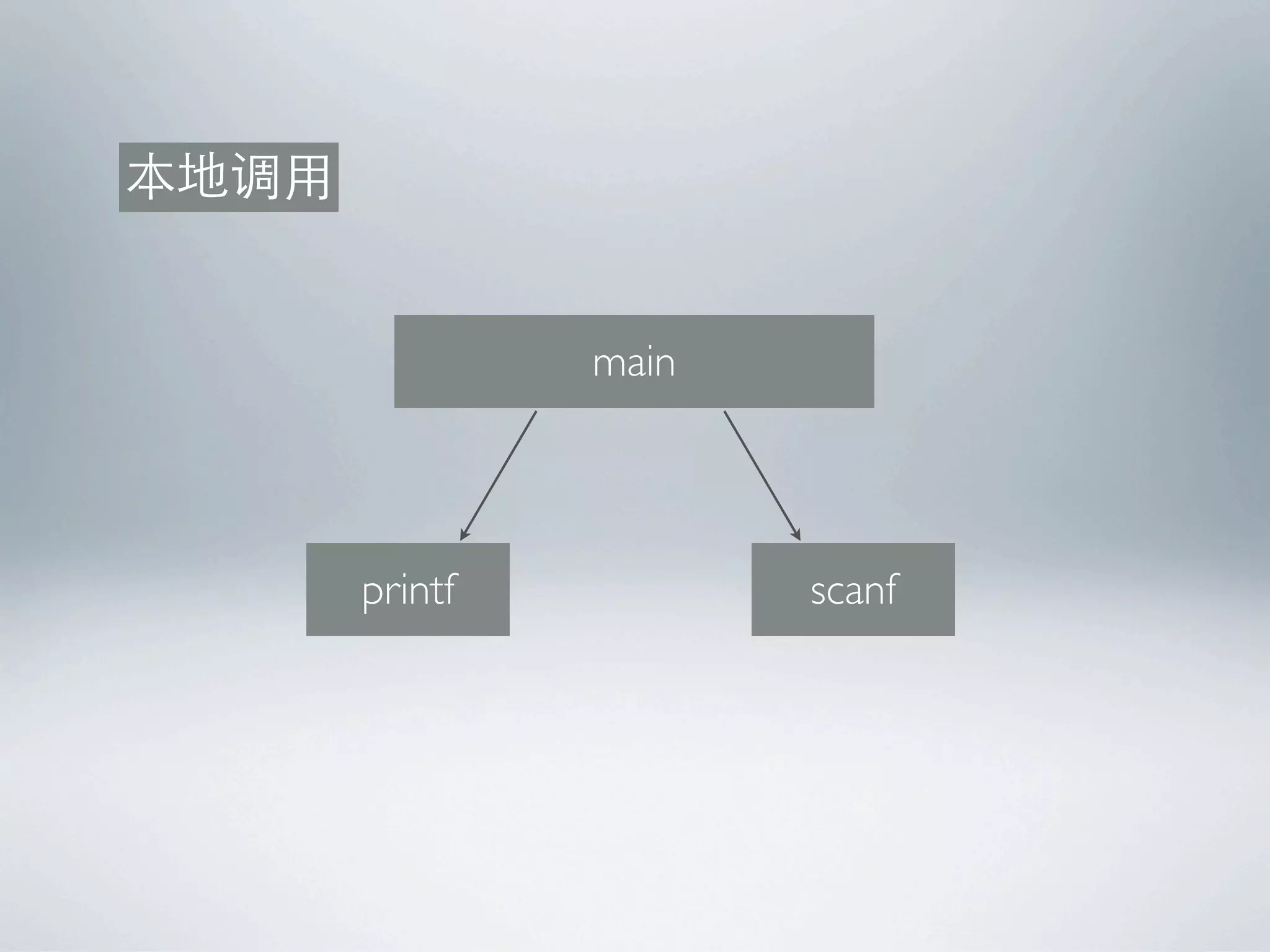
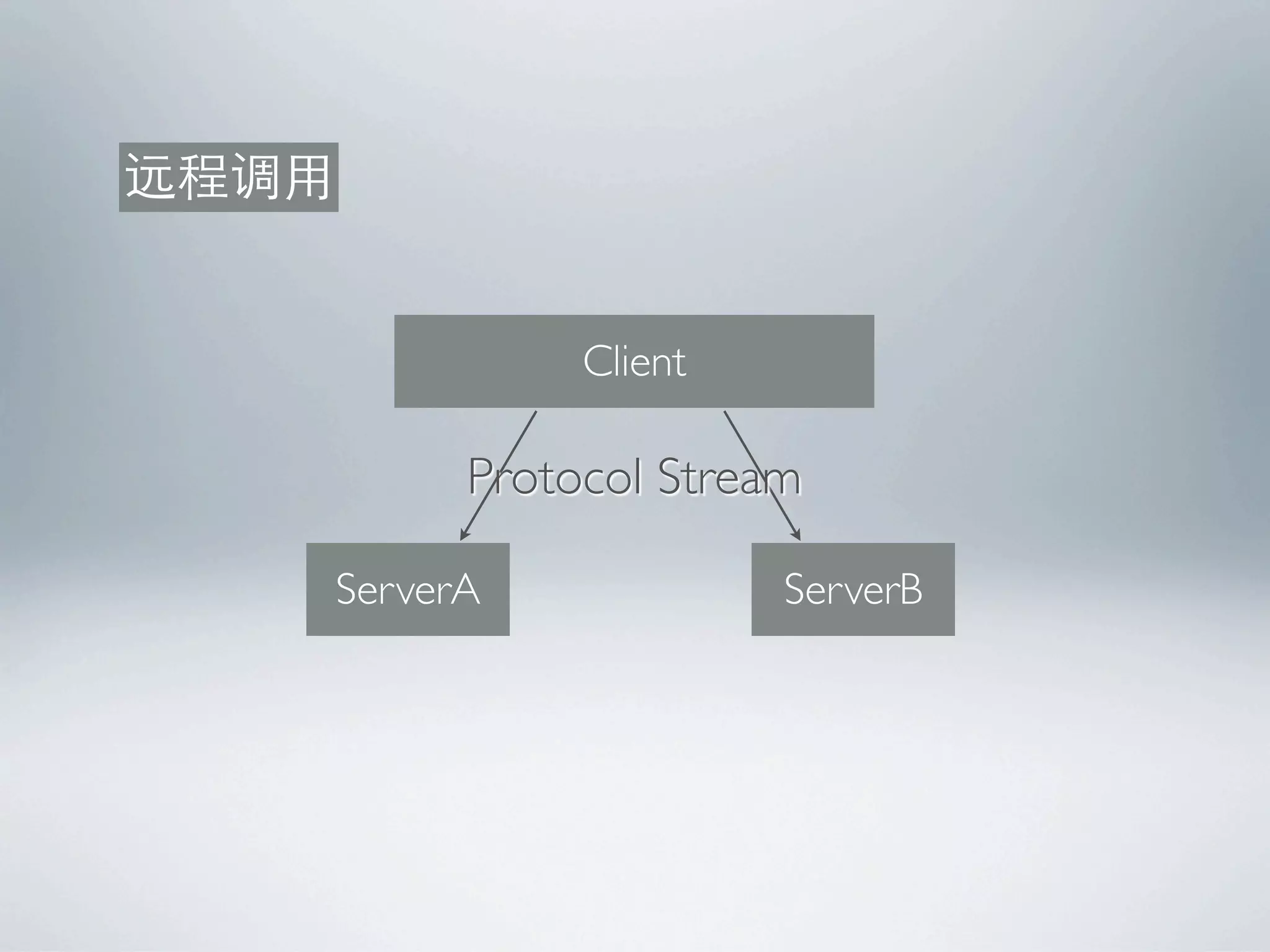
![Esty-python
class MockAPI(API):
api_url = 'http://host'
api_version = 'v1'
def etsy_home(self):
return Test.scratch_dir
def get_method_table(self, *args):
return [{'name': 'testMethod',
'uri': '/test/{test_id}',
'http_method': 'GET',
'params': {
'limit': 'int',
'test_id': 'user_id_or_name',
'offset': 'int',
'fizz': 'enum(foo, bar, baz)',
'buzz': 'float',
'blah': 'unknown type',
'kind': 'string',
},
'type': 'int',
'description': 'test method.'}]
def _get_url(self, url, http_method, content_type, body):
return '{ "count": 1, "results": [3] }'](https://image.slidesharecdn.com/pythonclientapi-120730041243-phpapp02/75/Python-client-api-5-2048.jpg)
![Esty-python
class MockAPI(API):
api_url = 'http://host'
api_version = 'v1'
def etsy_home(self):
return Test.scratch_dir
def get_method_table(self, *args):
return [{'name': 'testMethod',
'uri': '/test/{test_id}',
'http_method': 'GET', 重用
不直观 'params': {
'limit': 'int', 不依赖URL
缺乏语法检查 'test_id': 'user_id_or_name',
'offset': 'int', 类型验证
不易调试 'fizz': 'enum(foo, bar, baz)',
'buzz': 'float',
'blah': 'unknown type',
URL拓展
'kind': 'string',
},
'type': 'int',
'description': 'test method.'}]
def _get_url(self, url, http_method, content_type, body):
return '{ "count": 1, "results": [3] }'](https://image.slidesharecdn.com/pythonclientapi-120730041243-phpapp02/75/Python-client-api-6-2048.jpg)
![GuokrAPI v1
class GuokrAPI(API):
HOST = "http://localhost/"
METHODS = [{
"name": "get_tag",
"url": "tags",
"method": "GET",
"description": "Get the tag instance list",
}, {
"name": "get_tags",
"url": "tags/%(tagname)s",
"method": "GET",
"description": "Get a tag instance",
}]](https://image.slidesharecdn.com/pythonclientapi-120730041243-phpapp02/75/Python-client-api-7-2048.jpg)
![GuokrAPI v1
class GuokrAPI(API):
HOST = "http://localhost/"
METHODS = [{
不直观 "name": "get_tag",
"url": "tags",
重用
"method": "GET",
缺乏语法检查 "description": "Get the tag instance list", 不依赖URL
}, {
不易调试 "name": "get_tags", URLLIB3
"url": "tags/%(tagname)s",
类型验证 "method": "GET", URL拓展
"description": "Get a tag instance",
}]](https://image.slidesharecdn.com/pythonclientapi-120730041243-phpapp02/75/Python-client-api-8-2048.jpg)
![GuokrAPI v2
tagging = guokr.type( import guokr
'tagging' import minerva.types as minerva
).fields({
'id': 'int', tags = guokr.resources([
'tag': 'string', minerva.tag
'taggable': 'taggable', ])
'tag': 'string',
'user': 'ukey', taggings = guokr.resources([
'date_create': 'datetime', minerva.tag,
'date_deleted': 'datetime', minerva.taggable,
}).keys([ ]).namespace(
'id' 'taggings'
]).end() )
mercury.group.mixin(minerva.taggable)
# POST on url /tags
call = resources.tags.create().format('jsonp')
# POST on url /taggings/tags/科学/group/654321
call = resources.taggings.update({
'tag': '科学',
'taggable': group,
'user': 'afsrgx',
})](https://image.slidesharecdn.com/pythonclientapi-120730041243-phpapp02/75/Python-client-api-9-2048.jpg)
![GuokrAPI v2
tagging = guokr.type( import guokr
'tagging' import minerva.types as minerva
).fields({
'id': 'int', tags = guokr.resources([
'tag': 'string', minerva.tag
'taggable': 'taggable', ])
'tag': 'string',
'user': 'ukey', taggings = guokr.resources([
'date_create': 'datetime', minerva.tag,
'date_deleted': 'datetime', minerva.taggable,
}).keys([ ]).namespace(
'id' 'taggings'
]).end() )
mercury.group.mixin(minerva.taggable)
重用
# POST on url /tags
URL拓展 call = resources.tags.create().format('jsonp')
类型验证
抽象繁多 # POST on url /taggings/tags/科学/group/654321 链式语法
call = resources.taggings.update({
'tag': '科学', 清晰
'taggable': group,
'user': 'afsrgx',
})](https://image.slidesharecdn.com/pythonclientapi-120730041243-phpapp02/75/Python-client-api-10-2048.jpg)


